Life
Sign up for our newsletter
We summarize the week's scientific breakthroughs every Thursday.
-
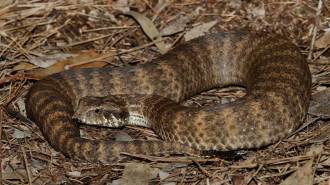 Animals
AnimalsScientists thought snakes didn’t have clitorises. They were wrong
Snakes were long thought to be the only reptile group to lack clitorises. But new findings suggest the sex organs are present after all.
By Jake Buehler -
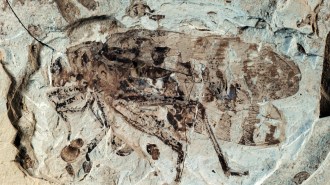 Paleontology
PaleontologyKatydids had the earliest known insect ears 160 million years ago
Fossils from the Jurassic Period show katydid ears looked identical to those of modern katydids and could pick up short-range calls.
-
 Microbes
MicrobesThe ancestor to modern brewing yeast has been found hiding in Ireland
Previously found in Patagonia and elsewhere, the brewing yeast Saccharomyces eubayanus has been found in Europe for the first time.
-
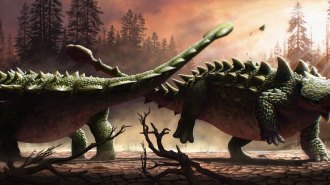 Paleontology
PaleontologyArmored dinos may have used their tail clubs to bludgeon each other
Broken and healed spikes on Zuul's flanks are consistent with the armored beast receiving a mighty blow from the tail club of another ankylosaur.
By Jake Buehler -
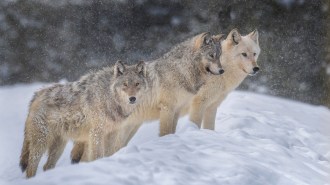 Life
LifeA parasite makes wolves more likely to become pack leaders
In Yellowstone National Park, gray wolves infected with Toxoplasma gondii make riskier decisions, making them more likely to split off from the pack.
By Jake Buehler -
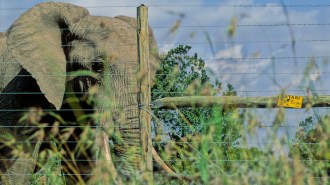 Animals
AnimalsA new book asks: What makes humans call some animals pests?
In an interview with Science News, science journalist Bethany Brookshire discusses her new book, Pests, and why humans vilify certain animals.
-
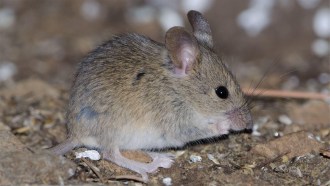 Animals
AnimalsA natural gene drive could steer invasive rodents on islands to extinction
A few genetic tweaks to a readily passed-on chunk of DNA could sterilize a mouse population, eliminating them in as little as 25 years.
-
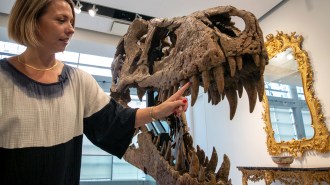 Paleontology
PaleontologyWhy the sale of a T. rex fossil could be a big loss for science
At least half of the roughly 120 known T. rex fossils are owned privately and not available to the public. “Maximus” may join them.
-
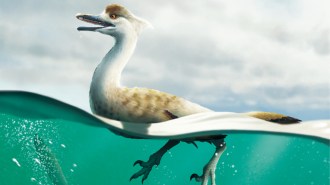 Paleontology
PaleontologyThis dinosaur may have had a body like a duck’s
Natovenator polydontus may have been adapted for life in the water, challenging the popular idea that all dinos were landlubbers.
By Nikk Ogasa -
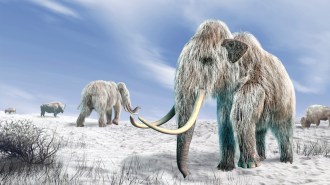 Paleontology
PaleontologyMammoths may have gone extinct much earlier than DNA suggests
Ancient DNA in sediments may be leading paleontologists astray in attempts to figure out when woolly mammoths and woolly rhinos died out, a new study argues.
By Bas den Hond -
 Animals
AnimalsDry pet food may be more environmentally friendly than wet food
The environmental cost of wet pet food is higher than dry food, scientists say. That may be because wet food gets most of its calories from animals.
By Meghan Rosen -
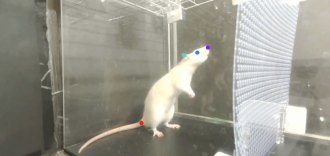 Neuroscience
NeuroscienceRats can bop their heads to the beat
Rats’ rhythmic response to human music doesn’t mean they like to dance, but it may shed light on how brains evolved to perceive rhythm.